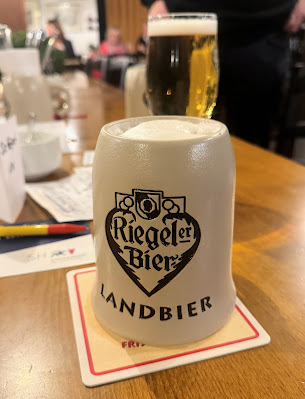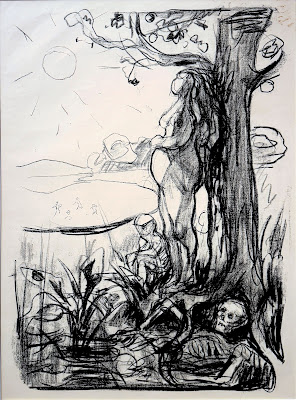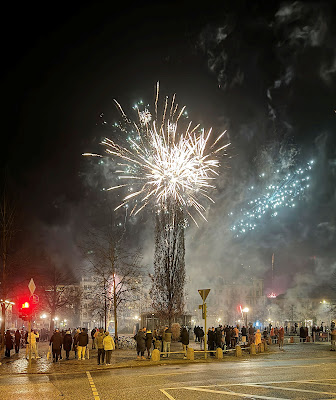Those times are over. The dictatorship of the proletariat predicted by Marx never took place because society slowly understood that a worker is not an exploitable commodity but has human dignity. This is why the class question has been depoliticized today but remains economically relevant.

|
|
The scissors open: Share of total income in Germany in percent for the lower 50% (red) and the top 10% (black) of the population over the years (©ISW) |
Last weekend, a new left-wing party was founded in Germany, the BSW, the Sahra Wagenknecht Bewegung (movement).

|
| Sahra Wagenknecht and her husband Oskar Lafontaine (©IMAGO/Chris Emil Janssen) |
How successful will the new party be? Can it overcome the five percent hurdle of the German electoral system?
The Wagenknecht party could make economic injustice a political issue. Apart from paying lip service to this injustice, no party in Germany is currently doing anything about it.
Although there is a growing awareness that inequality in society is increasing, there is neither a movement for more redistribution nor a comprehensive social protest.
According to some analysts, one of the reasons for this is the belief that in the end, according to a German proverb, Everyone is the architect of his/her own fortune and can make it from dishwasher to millionaire. Although research has largely disproved this belief, even people in Germany who are hardly lucky hold on to it.
People with little money also often believe that they are mainly competing with those who are even worse off than they are. That's why they think bullying the underlings is right instead of clenching their fists at the top.

|
|
One percent of Germany's population owns 41.1% of the financial
assets. This is only slightly less than the worldwide average (©T-Online). |

|
|
Oskar, the three-party man. From Social Democrat (SPD) via the Linkspartei (Die Linke) to the BSW (his wife's party) (©Kay Nietfeld) |
On the occasion, Sahra spoke more about practical matters such as the minimum wage, pensions, unemployment insurance, and taxes for the rich. She could motivate people with little money or without college degrees to vote for the BSW.
In fact, democracy has a real problem: The fight against growing inequality in society has no lobby. Sahra could put her finger in the wound.
Alongside social matters, peace policy is the second key issue for Wagenknecht's party. Seriously addressing the question of how to proceed in Ukraine, Israel, and Gaza should be of an essential concern for a left-wing party. But Sahra and Oskar did not dare to name perpetrators and victims - and to acknowledge that states are allowed to decide whether they want to continue to exist or not.
What remains in the end? "Politics only makes sense if it improves people's lives."
*































































